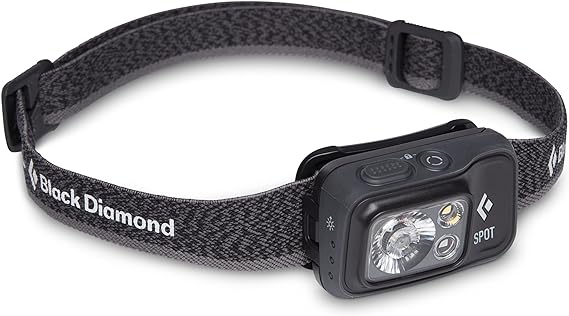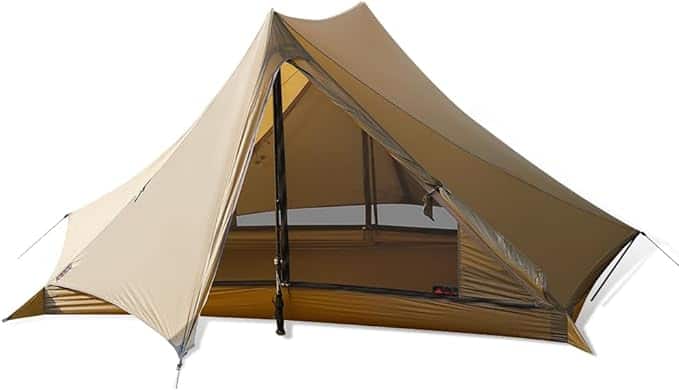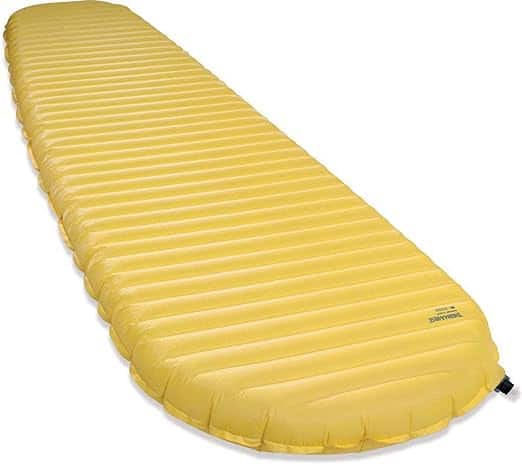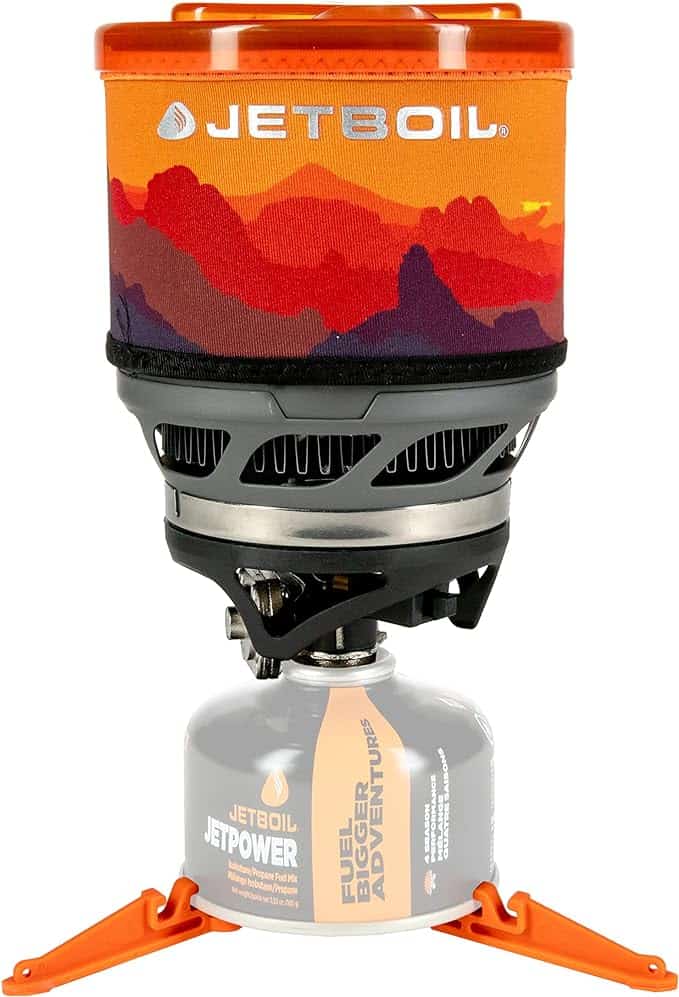Solo Camping: 40+ Tips and Tricks for Safe and Enjoyable Solo Outdoor Adventures
Embarking on a solo camping adventure can be an exhilarating experience, offering you the chance to connect with nature and yourself in a unique way. Whether you’re a seasoned outdoor enthusiast or a first-time camper, venturing into the wilderness alone presents both challenges and rewards. Camping by yourself allows you to set your own pace, make spontaneous decisions, and fully immerse yourself in the tranquility of the great outdoors.
As you prepare for your solo camping journey, it’s crucial to equip yourself with the right knowledge and gear to ensure a safe and enjoyable trip. This guide will walk you through essential solo camping for beginners tips, covering everything from safety precautions and gear selection to navigating common challenges. You’ll discover what to do when camping alone to make the most of your solitary outdoor experience while staying prepared for any situation that may arise. So, grab your backpack and get ready to embark on an unforgettable camping solo adventure!
Preparing for Your Solo Camping Adventure
When you’re getting ready for a solo tent camping trip, proper preparation is key to ensuring a safe and enjoyable experience. Let’s dive into the essential aspects of preparing for your adventure, including choosing the right campsite, packing the necessary gear, and planning your meals.
Choosing the Right Campsite
Selecting an appropriate campsite is crucial for your comfort and safety. You have several options to consider:
- Dispersed camping: This allows you to find a designated primitive area and set up camp wherever you want. Some spots may have basic amenities like pit toilets and fire pits.
- Campgrounds: These offer more amenities such as functioning bathrooms, showers, fire pits, picnic tables, and sometimes even electrical outlets and Wi-Fi. You’ll typically need to pay a fee and make a reservation in advance.
- Glamping: For a more luxurious experience, glamping provides hotel-like amenities in a wilderness setting, often in pre-set canvas tents or cabins.
When choosing your specific site, look for:
- Level, dry, and well-drained ground
- Natural protection from wind and sun
- A safe distance from water sources (at least 200 feet from lakes and 100 feet from streams)
- Existing fire rings (if allowed and you plan to have a campfire)
- Adequate space for your tent and gear
Essential Gear Checklist
To ensure you have everything you need for solo camping, double-check your solo camping checklist before heading out. Here’s a list of solo camping essentials:
- Tent or shelter
- Sleeping bag and sleeping pad
- Camping stove and fuel
- Water purification system
- First aid kit
- Navigation tools (map, compass, or GPS device)
- Headlamp or flashlight
- Multi-tool or knife
- Fire-starting materials
- Appropriate clothing and footwear
- Food storage container (bear canister if required)
- Toiletries and personal hygiene items
Don’t forget to bring safety items such as bear spray or other self-defense tools if appropriate for your camping area. This solo camping gear list covers the basics for a successful trip.
Meal Planning and Food Safety
Proper meal planning and food safety are essential for a successful solo car camping trip. Here are some tips:
- Plan your meals in advance and pre-prepare ingredients when possible.
- Pack non-perishable, easy-to-prepare foods like dehydrated meals, canned goods, and energy bars.
- Use a high-quality cooler to keep perishable items fresh.
- Store food properly to avoid attracting wildlife. Use bear-proof containers or hang food bags if necessary.
- Bring a portable water filter or purification tablets to ensure access to clean drinking water.
- Pack biodegradable soap and follow Leave No Trace principles when cleaning up.
Read more
By carefully preparing for your solo camping adventure, you’ll set yourself up for a safe and enjoyable experience in the great outdoors. Remember to always inform someone of your plans and expected return date before going camping alone.
Safety Precautions for Solo Campers
When you’re camping alone, safety should be your top priority. By taking the right precautions, you can enjoy your solo adventure with peace of mind. Here are some essential safety measures to consider:
Sharing Your Itinerary
Before you head out on your solo camping trip, it’s crucial to let someone know about your plans. This simple step can be a lifesaver if something goes wrong. Here’s what you should do:
- Inform a trusted friend or family member about your trip details.
- Provide them with specific information, including:
- The area of the park you’ll be staying in
- The clothes you’re bringing
- Your planned return date and time
By sharing this information, you ensure that someone can alert search and rescue teams if you don’t return as scheduled. This can be invaluable if you get lost or injured and can’t call for help yourself.
Using Technology for Safety
While you might be camping solo to escape the digital world, your phone can be a crucial safety tool. Here’s how technology can help keep you safe:
- Bring your phone: It provides access to maps, weather forecasting, and emergency services.
- Use it for emergencies: You can call 911 even with a poor network connection or without a wireless plan.
- Consider an emergency GPS locator beacon or personal locator beacon (PLB): This device can be crucial if you’re out of cell service range.
- Use camping apps: Tools like Sekr can help you find campgrounds with cell service, allowing you to stay connected.
Remember to keep your devices charged and easily accessible, especially at night.
Wildlife Awareness
Being aware of your surroundings is crucial when camping by yourself. Here are some tips to help you stay safe from wildlife:
- Be vigilant: Stay alert and aware of your environment at all times.
- Familiarize yourself with potential risks: Learn about local wildlife and any specific precautions needed.
- Store food properly: Use bear-resistant containers or hang food between trees, at least 10 feet off the ground.
- Keep a clean campsite: Properly dispose of trash and clean up after meals to avoid attracting animals.
- Use noise to your advantage: Normal camping sounds can help deter wildlife.
- Carry protection: Consider bringing bear spray for added security.
By following these safety precautions, you can significantly reduce risks and enjoy a safer solo camping experience. Remember, being prepared and aware is key to a successful and enjoyable adventure in the great outdoors.
Enjoying the Solo Camping Experience
Mindfulness and Nature Connection
Solo tent camping offers a unique opportunity to reconnect with nature and yourself. When you’re alone in the wilderness, you can fully immerse yourself in your surroundings, observing wildlife and appreciating the beauty around you. This solitude creates the perfect environment to practice mindfulness and meditation.
To enhance your nature connection:
- Take time to breathe mindfully, focusing on the air entering and leaving your body.
- Look around and notice the details – colors, patterns, and textures of your environment.
- Close your eyes and listen to the sounds of nature – birdsong, rustling leaves, or flowing water.
These practices help you live in the present moment, reducing anxiety and creating a calmer, happier state of mind. The combination of spending time outdoors and practicing mindfulness can be particularly effective for your mental wellbeing.
Solo-Friendly Activities
While camping alone, you have the freedom to set your own pace and engage in solo camping activities that interest you. Here are some solo-friendly activities to keep you entertained:
- Photography: Capture the beauty of nature and create lasting memories of your trip.
- Reading: Bring along a good book or e-reader to enjoy during downtime.
- Journaling: Document your experiences and reflections in a journal.
- Exploring: Take hikes to discover the surrounding landscape, using a map or GPS for safety.
- Stargazing: Enjoy the night sky away from city lights.
- Cooking: Experiment with camp-friendly recipes or make classic camping treats like s’mores.
- Puzzles and games: Bring along sudoku, crosswords, or playing cards for mental stimulation.
- Listening to music or podcasts: Download your favorites before the trip for offline enjoyment.
Remember, you don’t need to fill every moment with activity. Allow yourself time to simply sit and absorb the peacefulness of nature.
Navigating Challenges of Solo Camping
Dealing with Loneliness
Camping solo can sometimes lead to feelings of loneliness, but it’s important to remember that being alone doesn’t always mean being lonely. To overcome these feelings:
- Embrace the solitude: Use this time for self-reflection and personal growth.
- Stay connected: Let loved ones know your plans and check in periodically if possible.
- Engage with your surroundings: Focus on the natural world around you to stay present.
- Bring comforting items: Pack a favorite book, music, or a small memento from home.
- Practice self-care: Prioritize activities that make you feel good, like preparing a nice meal or taking a relaxing walk.
Remember, it’s normal to feel nervous before a solo trip. This anticipation can actually help you prepare better and become more resilient. As you gain experience, you’ll likely find that the early morning birdsong and the freedom to explore at your own pace make solo camping an enriching adventure.
Staying Safe in Bear Country
When camping alone in bear country, it’s crucial to take proper precautions:
- Use bear-proof containers: Store all food and scented items in airtight canisters.
- Keep a clean campsite: Dispose of garbage properly and avoid leaving food scraps.
- Cook away from your tent: Prepare meals at least 100 feet downwind from your sleeping area.
- Carry bear spray: Keep it easily accessible and know how to use it.
If you encounter a bear:
- Stay calm and don’t run
- Make yourself look bigger by raising your arms
- Speak in a soothing voice
- Slowly back away, giving the bear space
Remember, most bears are naturally afraid of humans and will avoid contact if given the chance.
Overcoming Fear of the Dark
It’s common to feel anxious when camping by yourself, especially at night. Here are some strategies to help you manage these fears:
- Bring a reliable headlamp or flashlight: Good lighting can help you feel more secure.
- Use noise to your advantage: Listen to podcasts or music to block out unfamiliar sounds.
- Stay inside your tent at night: Avoid unnecessary trips outside after dark.
- Practice mindfulness: Focus on your breathing and the present moment to calm your mind.
- Remind yourself that your fears are often unfounded: Most noises are harmless wildlife or natural sounds.
With time and exposure, these fears often diminish. Remember, you don’t have to be fearless – courage is about facing your fears and not letting them hold you back from enjoying your solo camping experience.
By preparing for these challenges, you can enhance your solo camping adventure and gain confidence in your ability to navigate the wilderness alone. Each trip will build your camping skills, fire-starting skills, and outdoor confidence, making future solo expeditions even more enjoyable.
PIN THIS ARTICLE
Conclusion
Solo camping offers a unique chance to connect with nature and oneself, providing a platform for personal growth, self-reliance, and independence. The tips and strategies discussed in this guide aim to help you prepare, stay safe, and make the most of your solitary outdoor adventure. By following these guidelines, you can minimize risks and enhance your overall experience in the wilderness.
Remember, solo camping is not just about facing challenges but also about embracing the freedom and tranquility that come with it. As you gain more experience, you’ll likely find that the initial nervousness gives way to confidence and a deeper appreciation for the natural world. So pack your gear, head out into the wild, and get ready to create unforgettable memories on your solo camping journey.









